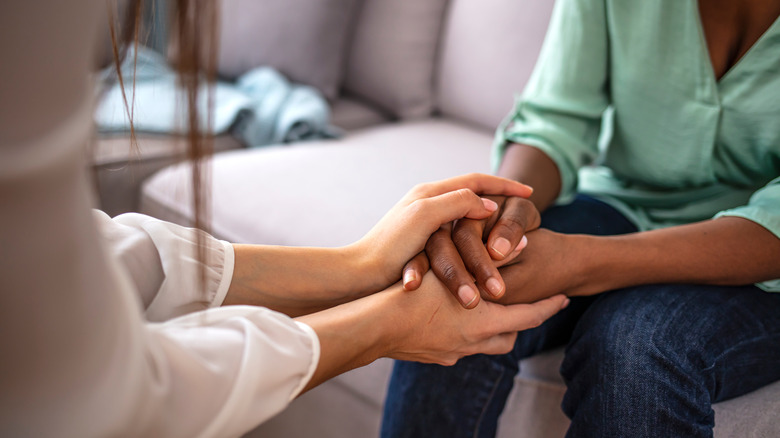How To Date If You Have A Fearful-Avoidant Attachment Style
Everyone navigates interpersonal relationships differently. Many times, the way in which we interact with romantic partners stems from many things that have happened to us in our past. For one, our attachment style — or the way of relating to others in a relationship — stems from our childhood and the way in which our caregivers treated us in our youth (via Mind Body Green).
There are four main types of attachment styles when it comes to relationships: secure, anxious, avoidant, and fearful-avoidant. Secure and avoidant people often times have lower anxiety when it comes to relationships, where anxious and fearful-avoidant have higher anxiety. Avoidant and fearful-avoidant people have a high probability of, you guessed it, avoiding relationships, where as secure and anxious people have a low probability of avoiding relationships.
Each attachment style has its own triggers and reasons behind developing, but they're not totally impossible to navigate and have while swimming in the sea of potential fishes.
If you have a fearful-avoidant attachment style, you may crave attention and space at the same time
Of all the attachment styles, fearful-avoidant is definitely the most complex. Essentially, it's a combination of both avoidant and anxious attachment styles and has two very conflicting points of view. People who have fearful avoidant attachment style want love and affection, but also want to avoid it altogether. Many times, people struggle with finding the right partner because of this. They crave affection, but don't want to get too close to anyone for it to be real (via Mind Body Green).
People with fearful-avoidant attachment style usually come from homes in which they had a caregiver who was traumatizing and harmful to them, leading to them lacking trust in someone genuinely caring for them. Often times, people who come from abusive homes with abusive caregivers end up having fearful-avoidant attachment styles. As adults, people with this attachment style often times end up in violent relationships or have heightened sexual behavior (via Mind Body Green).
If you are someone with fearful-avoidant attachment style, it's important to recognize healthy and toxic relationships. It's important to heal your past traumas, as well, before entering a new relationship altogether. Working on yourself through therapy and healing your past is key to having positive relationships overall.
Never be afraid to get to know yourself better!

